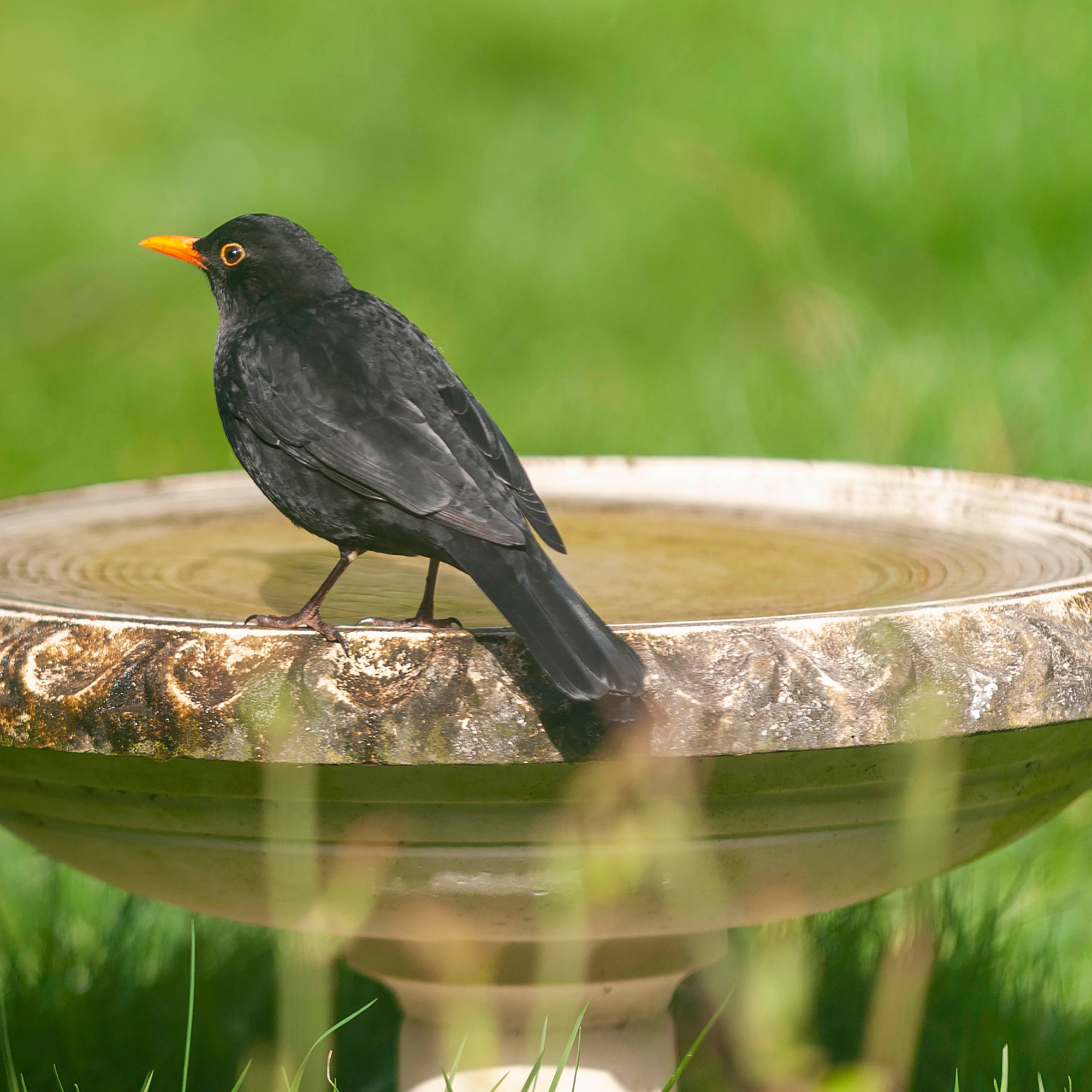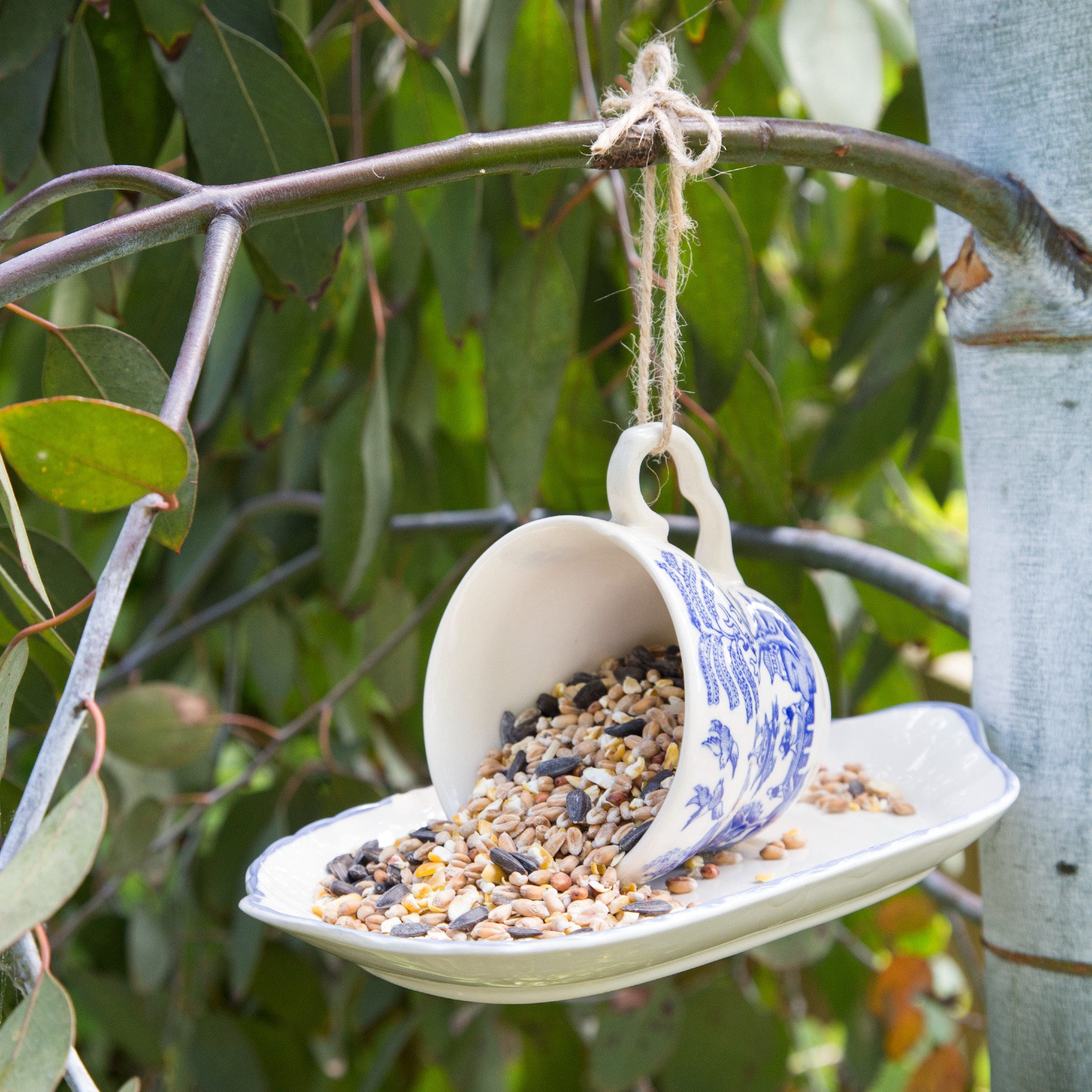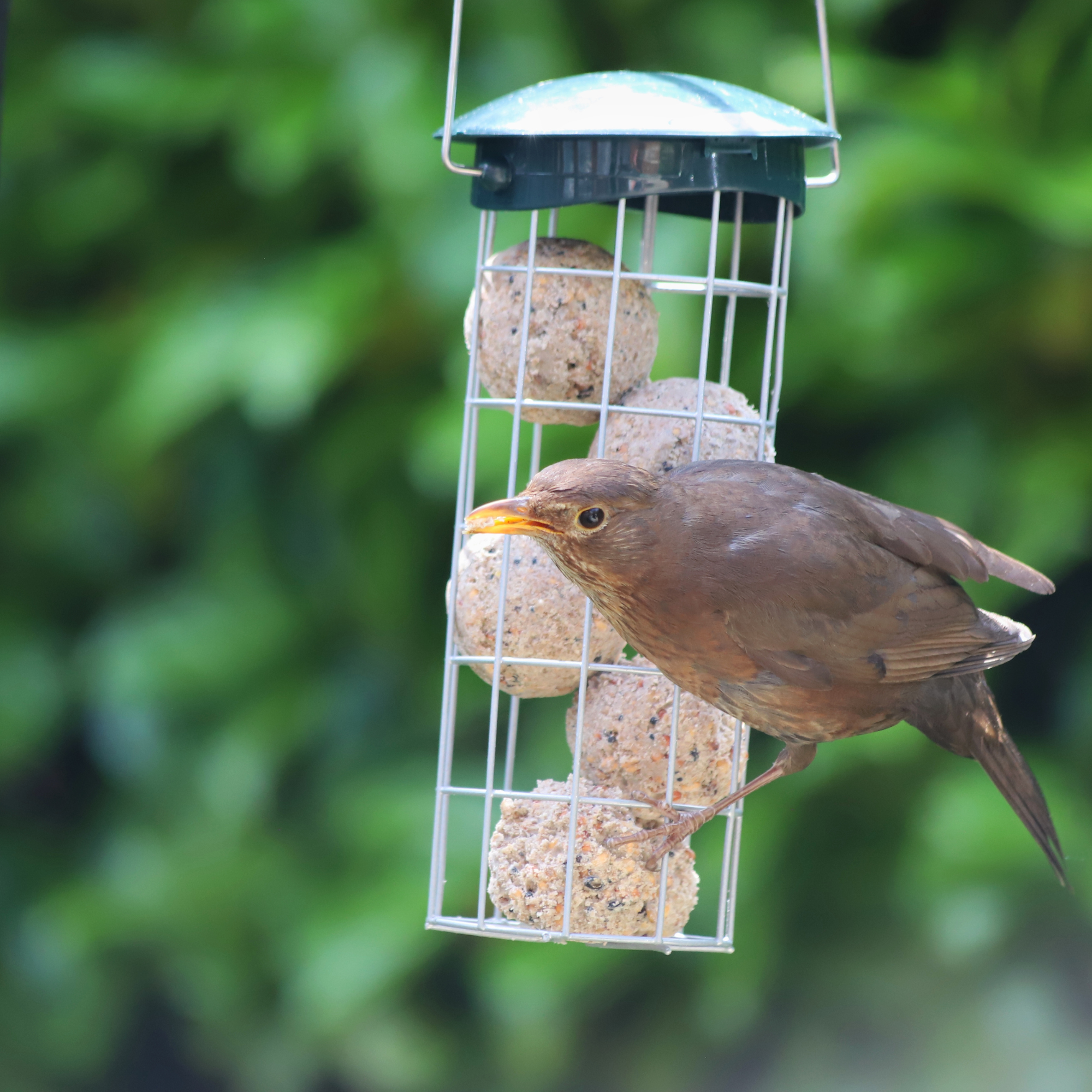
The British Trust for Ornithology has urged garden owners to feed blackbirds this winter, as a new virus is threatening the species. The spread of the mosquito-born Utsu virus and a scarcity of food during the winter months have caused this native bird to decline in numbers.
Birds are an important part of our garden ecosystem. They eat common pests and can help pollinate plants, which is why it is so important to give these feathered friends a helping hand when we can.
Keeping on top of your bird bath winter care and protecting your feeder from rats and squirrels are a couple of things you can do to encourage birds to your gardens. Experts have revealed the best way to attract blackbirds to your garden so you can ensure they are well-fed this winter.
What to feed blackbirds
The virus first appeared in the UK in 2020 and since, researchers have seen an increase in decline in blackbirds. Not only are they affected by the disease, but blackbirds are also non-migrating birds, which means they rely on scarce food supplies throughout the winter.

‘Blackbird sightings have been in decline in recent years, with the main two culprits thought to be disease and a lack of food to see them through the winter,' says James Ewens, Commercial Director of Green Feathers. 'The Usutu virus, deadly to blackbirds, is transmitted by the rising numbers of mosquitoes in the south, due to climate change, while in other parts of the UK, winter food shortages have been a prevalent problem.
'Unfortunately, there’s not much we can do about the disease, however, we can certainly help keep blackbirds fed over winter and do our part to help our feathered friends thrive.'
‘In terms of what we should be feeding blackbirds, the best options are suet/fat balls and mealworms. While you can also feed them birdseed, blackbirds are softbilled birds and therefore struggle to get through the hard outer shells of some seeds and grains - so, be sure to get a mix that’s specially formulated for these kinds of birds.
‘Blackbirds are also often too big to feed from conventional hanging feeders, which can make providing food specifically for blackbirds a bit tricky. The two main alternatives to conventional bird feeders are using a bird feeding table or simply placing the food on the ground and using a ground feeder cage to keep it protected.
‘While these cages won’t prevent smaller birds and animals from getting at the treats, it will stop larger birds, like pigeons, from having their fill. If you’ve seen blackbirds around your garden already, you can even just scatter the food around, while also encouraging them to forage and not rely on food being put out for them.’
Blackbirds are softbilled making suet balls a better choice for them than standard birdseed.
Blackbirds are to big for a standard feeder, making a table a better choice.
A ground feeder cage will stop larger birds such as pigeons from taking food from blackbirds.
What else can we do to help blackbirds?

While feeding blackbirds over winter is an important job, there are a few extra measures you could take to help them.
‘During the winter months and especially when the ground is frozen, blackbirds largely switch from eating invertebrates such as earthworms, to berries such as Hawthorn, Holly and Rowan,’ says Lucy Taylor garden bird expert at Vine House Farm Bird Foods.
‘The berries of ornamental species like Pyracantha and Cotoneaster are also readily eaten. So by planting these species now in your garden, you can help blackbirds in the future when they’re likely to need our support even more. The other real benefit of such shrubs in gardens for Blackbirds is that their relatively dense nature makes them ideal nesting sites.’
blackbirds are an important part of any ecosystem - which is why we should all lend them a helping hand this winter.







